healthcare
August 3, 2014

Published by Cor Dietvorst at Aug 03 2014
This article was originally posted on IRC WASH blog on 1 August 2014 by Cor Dietvorst and Vera van der Grift Dr. Mushtaque Chowdhury from BRAC on the Bangladesh public health miracle, aid or trade, arsenic, floating latrines and the post-2015 development agenda.
July 23, 2014
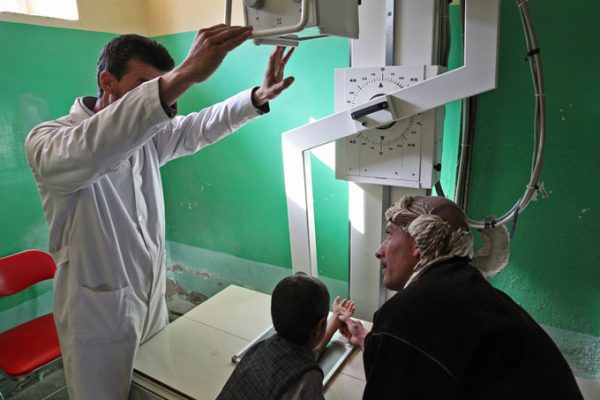
Published by Nazes Afroz at Jul 23 2014
It was Monday, a bazaar day at Qarabag. Hundreds of people were milling about the market, which stretches along one of the roads of the junction. They were buying clothes, daily essentials and food. On these days, the number of visitors at the BRAC-managed district hospital also doubles.
June 27, 2014
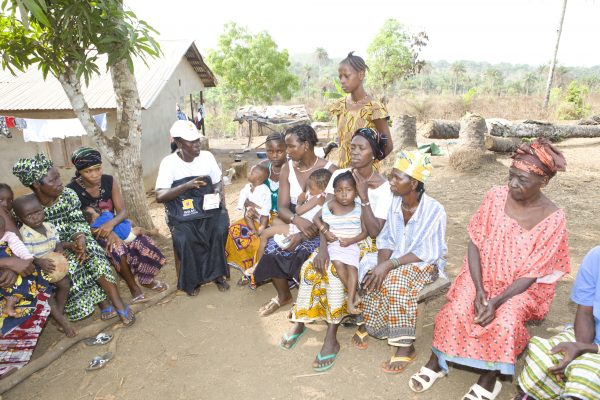
Published by Scott MacMillan at Jun 27 2014
Fears are rising in Sierra Leone, Liberia and Guinea that the deadly Ebola virus is spreading out of control. I spoke to Tapan Karmakar, country representative of BRAC Sierra Leone. “People are now afraid,” he told me. Additional funding is needed for community health workers to reach remote areas.
November 12, 2011
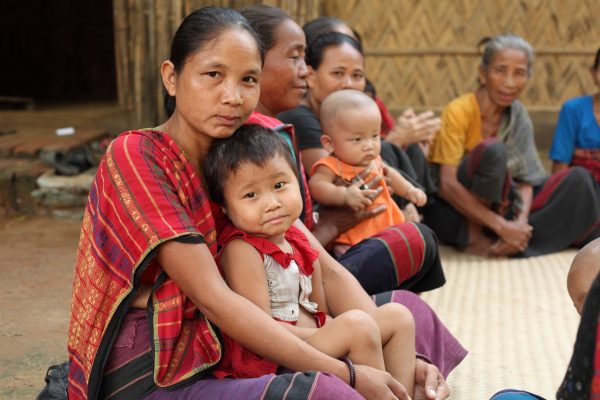
Watch Message from Sir Fazle Hasan Abed, BRAC Founder & Chairperson on World Pneumonia Day 2011Globally, in every 20 second a child dies from pneumonia. This loss of life is even more tragic because nearly all of these deaths are preventable, and more than 98% of childhood pneumonia deaths occur in developing countries. Safe and effective vaccines, inexpensive treatments and preventive measures exist that can save lives.
October 14, 2011
On the occasion of the launch of its book Making Tuberculosis History: Community-Based Solutions for Millions, Bangladesh-based BRAC is sharing stories about those taking part in its successful approach to combating TB. The following is the third in a series; previously we featured the stories of Shanta and Shahida.
October 13, 2011
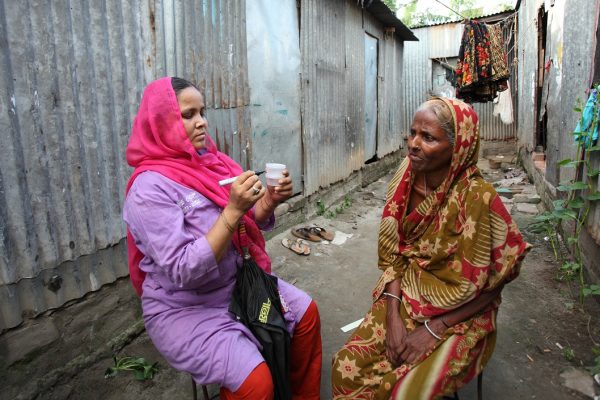
On the occasion of the launch of its book Making Tuberculosis History: Community-Based Solutions for Millions, Bangladesh-based BRAC is sharing stories about those taking part in its successful approach to combating TB. The following is the second in a series; click here to read the previous story of Shanta, neighbor and care provider.
October 12, 2011
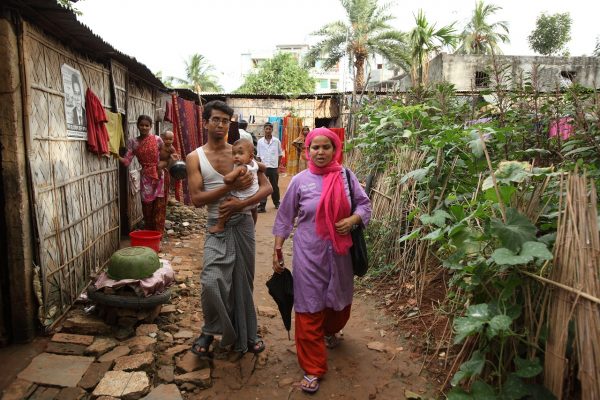
Published by BRAC at Oct 12 2011
Categories
On the occasion of the launch of its book Making Tuberculosis History: Community-Based Solutions for Millions, Bangladesh-based BRAC is sharing stories about those taking part in its successful approach to combating TB. The following is the first in a series.By Maria A. May, BRAC Health Program
September 7, 2011
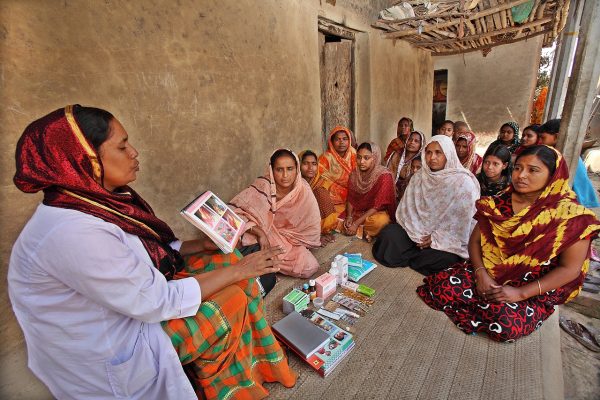
“I became interested when I heard that this project aimed to save mothers, newborns and children. If I can save a single life of a mother or a newborn by providing health care services, it would be a great achievement for me. This will make my mother happy, and the souls of my sister and my brother will be pleased.”
July 15, 2011
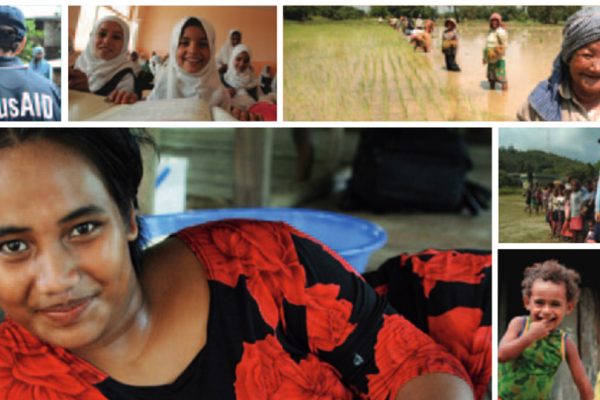
Last year, the Australian Government commissioned an independent review of its overseas aid program, AusAID, to examine the effectiveness of the current program and recommend improvements. The study's findings, which were published in an April 2011 report, found that AusAID's overall performance was effective, particularly in Bangladesh where it has delivered key improvements in education, health, and reducing extreme poverty. The review cites that these results have been achieved through a range of partnerships with NGOs, most notably BRAC. In a resounding endorsement, the review panel argued that "BRAC is a good example of an effective local NGO that Australia can confidently support."
July 1, 2011

Below is post from Christy Turlington Burns, founder of the non-profit organization, Every Mother Counts and Director/Producer of the documentary film "No Woman, No Cry". In this article, originally published on Huffington Post, Christy Turlington Burns writes about her experience of returning to Bangladesh for the first time since filming the segment on BRAC's Manoshi project aimed at improving maternal health in the slums of Dhaka. We started our day at Dhaka Medical College's teaching hospital where we learned more about one of the most common pregnancy-related morbidities (or disabilities) that poor women endure in childbirth; obstetric fistula. An obstetric fistula is when a woman suffers an obstructed labor, ultimately tearing a hole in her birth canal. Fistulas lead to incontinence of urine, feces and often cause infertility. Equally as devastating is that most women with fistulas are ostracized by their families and communities.
June 20, 2011
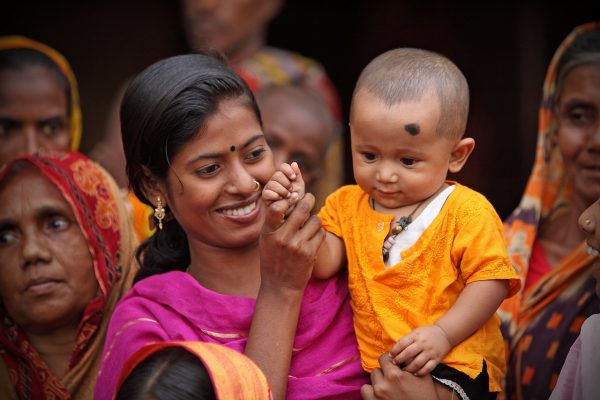
Below is post from Christy Turlington Burns, founder of the non-profit organization, Every Mother Counts and Director/Producer of the documentary film "No Woman, No Cry". In this article, originally published on Huffington Post, Christy Turlington Burns writes about her experience of returning to Bangladesh for the first time since filming the segment on BRAC's Manoshi project aimed at improving maternal health in the slums of Dhaka.
June 7, 2011

Published by BRAC at Jun 07 2011
Categories
This post, originally posted on the Jolkona website, is a reflection of Saman Nizami’s experiences and observations during her internship for BRAC’s “Targeting the Ultra-Poor” program in Bangladesh.

